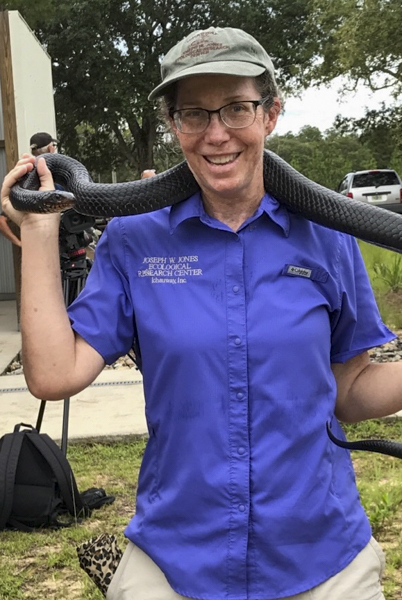
Dr. Lora L. Smith
Scientist
My research interests are centered around the ecology of amphibians and reptiles of the Southeastern Coastal Plain, and in particular on wildlife linkages between aquatic and terrestrial systems and keystone species in these systems. I am also interested in interactions between natural and human disturbance legacies in longleaf pine forests and herpetofaunal communities. Aspects of my research have been incorporated into training workshops and field courses for working professionals and university students.
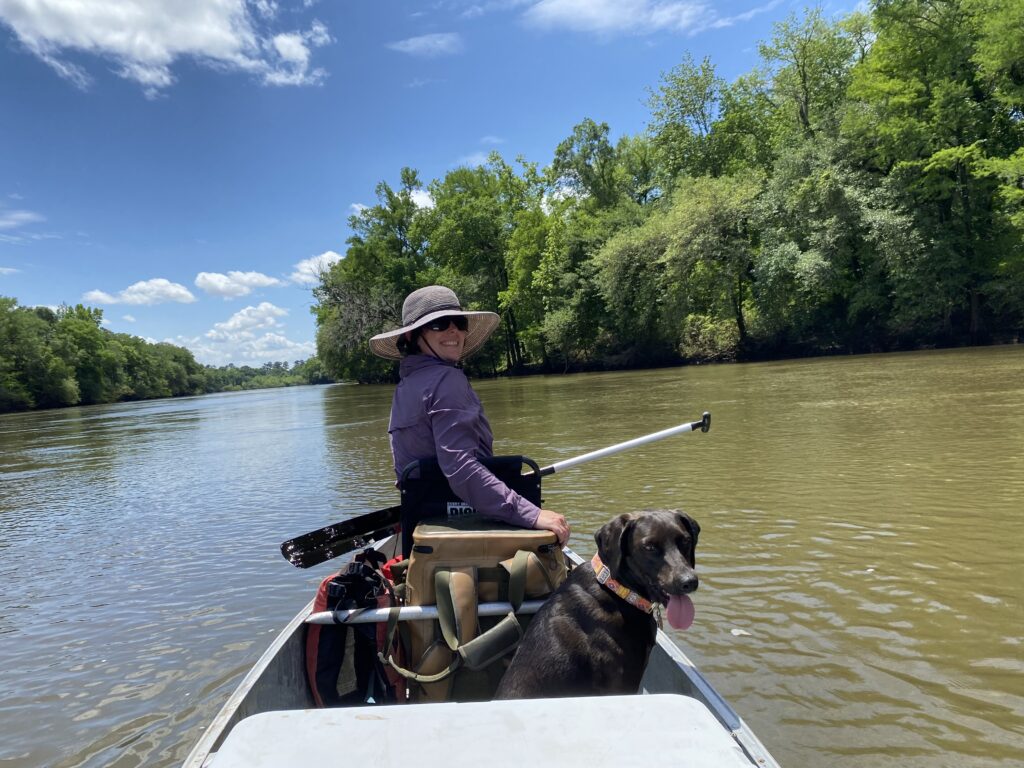
Jen Howze
Senior Research Associate II
My research interests focus on the management and conservation of reptiles and amphibians in the longleaf pine ecosystem. Current projects center on upland snake and gopher tortoise ecology and monitoring rare pond-breeding amphibians. I obtained my B.S. and M.S. degrees in Wildlife Ecology and Management from the University of Georgia, during which, I researched a broad range of mammal species, with a particular emphasis on forest bats and small mammals.
I’m originally from Smithtown, New York, but have called Georgia my home for many years and live in Albany with my husband, Brent, two dogs, Goose and Pepper, and kitty, Rosie. Outside of work, my best days are spent floating down the Flint River, sitting on my back porch, or gardening.
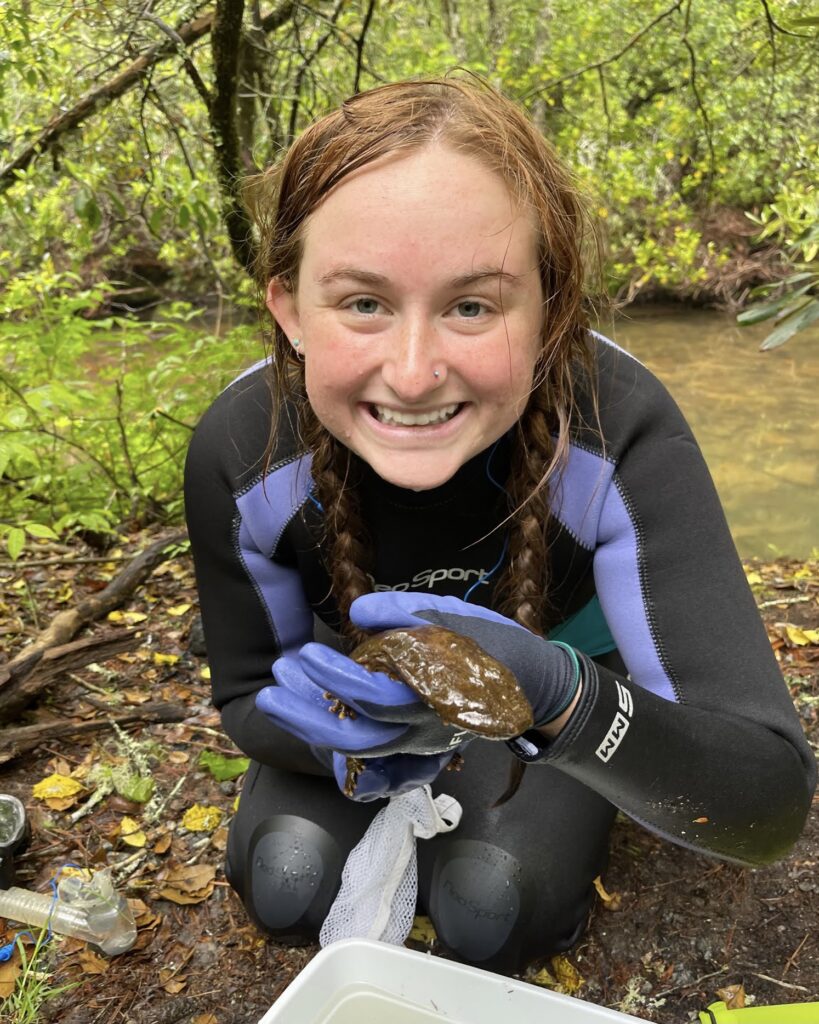
Ivy Bryan
Research Technician I
I’m a Clemson University graduate with a B.S. in Wildlife and Fisheries Biology, and a minor in Animal and Veterinary Sciences. My main research interests are primarily with amphibians/reptiles and freshwater ecology, but I am currently enjoying new experiences and outlooks through varying wildlife/herpetology-based positions. In my free time, I enjoy playing mandolin, hiking, and simply being outside.
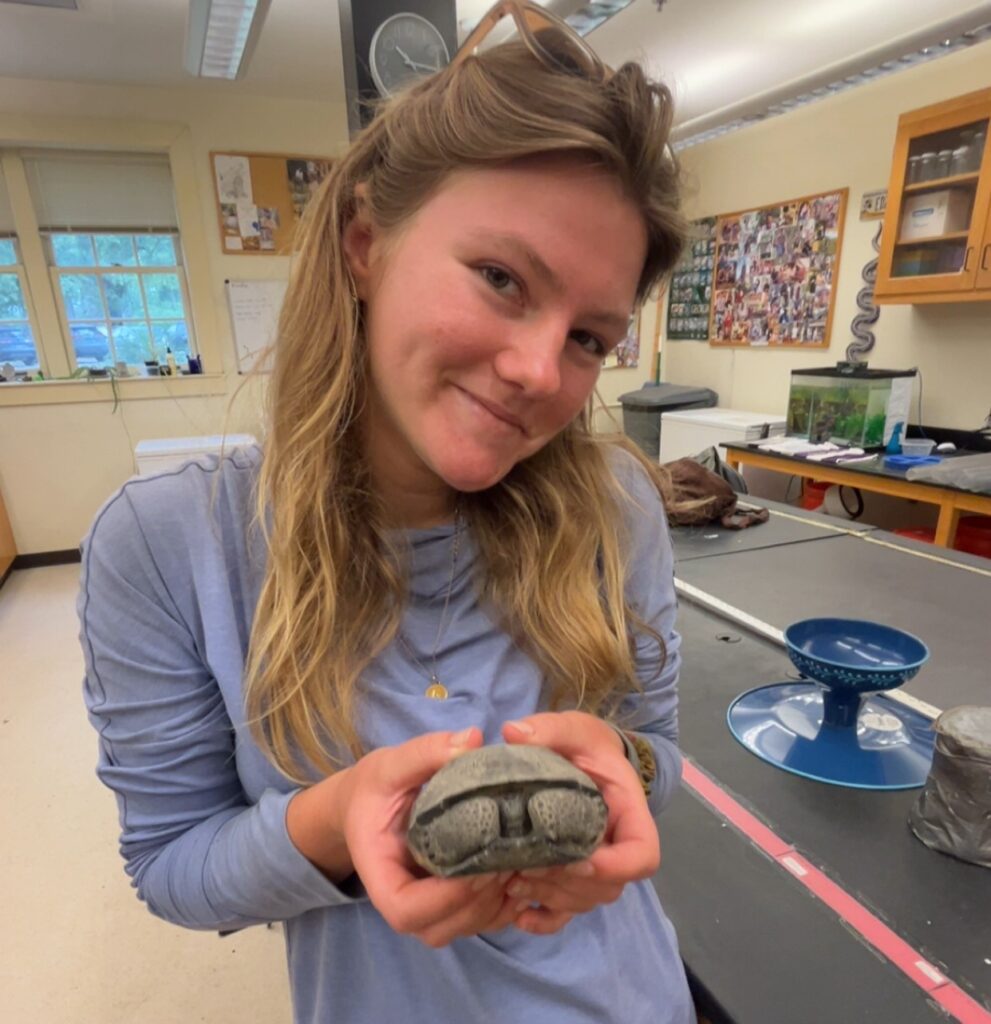
Kristina Hefferle
Seasonal Research Technician
After receiving my B.S. in Biology and B.A. in Anthropology from UNC Chapel Hill, I have surveyed for herps and small mammals in the Southeast through multiple tech positions. My broad research interests involve animal behavior and development in changing environments, but I have a soft spot for wetlands and amphibians in particular. In my free time I enjoy running, reading, and camping with my friends.
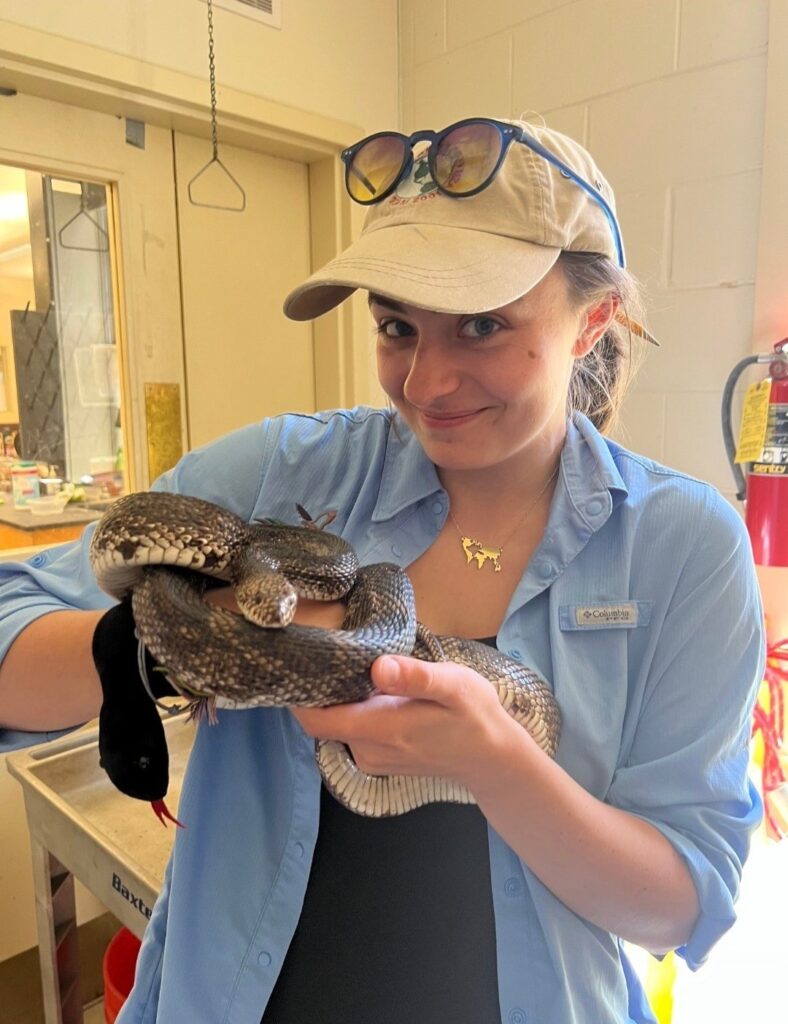
Phoebe Soldi
Seasonal Research Technician
After graduating from Purdue University with B.S. degrees in Wildlife and Aquatic Sciences, I have taken field jobs around the US to better understand my niche in the world of wildlife ecology. My primary research interests are in population ecology and herpetology, particularly for snakes and salamanders. I hope to conduct research to allows for more effective capturing and understanding of such cryptic and cool creatures. In my free time, you can often find me crocheting, reading, doing puzzles, or any other activity you might find your grandma doing on a Saturday.
Graduate Students
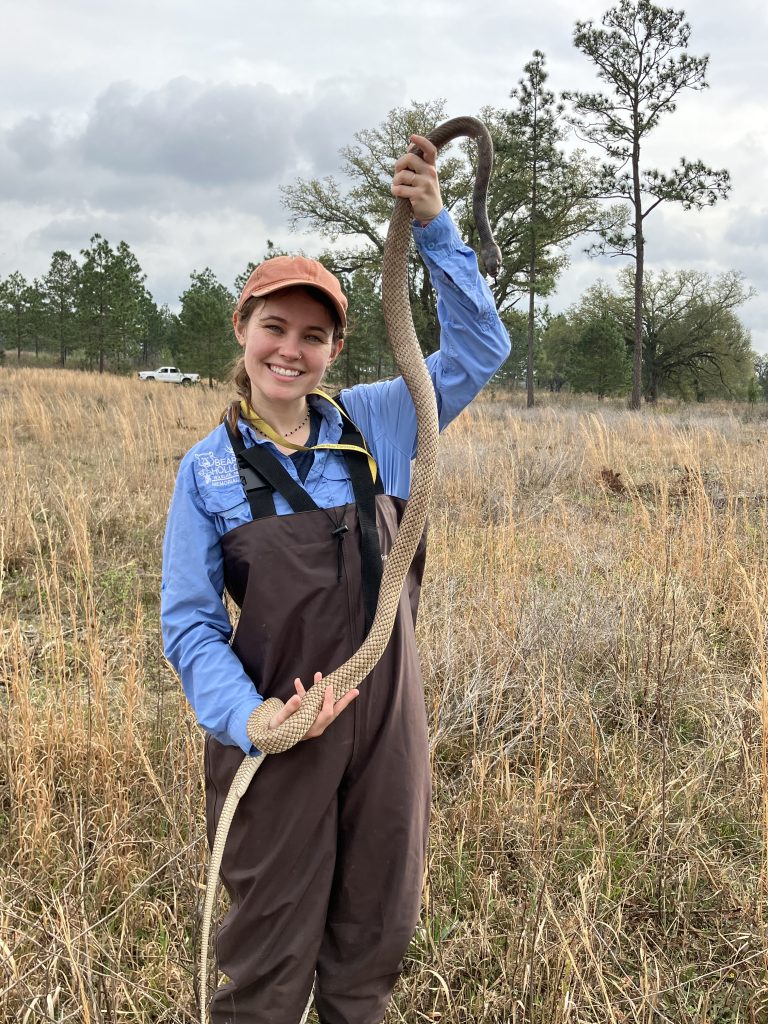
Jade Samples
M.S. Student
I am currently a Master’s student with the Warnell School of Forestry and Natural Resources at the University of Georgia. After receiving my B.S.F.R in Fisheries and Wildlife from the University of Georgia, I spent several seasons working as field technician and crew leader in research projects ranging from salamanders to bat ecology. I am interested in amphibians as bioindicators and improving management practices to help reverse the effects of habitat loss. My research at the Jones Center is focused on how amphibian and plant communities respond to wetland restoration. For my Master’s, I am investigating how certain restoration techniques can affect wetland biodiversity and specifically gopher frog population responses to restored isolated wetlands.
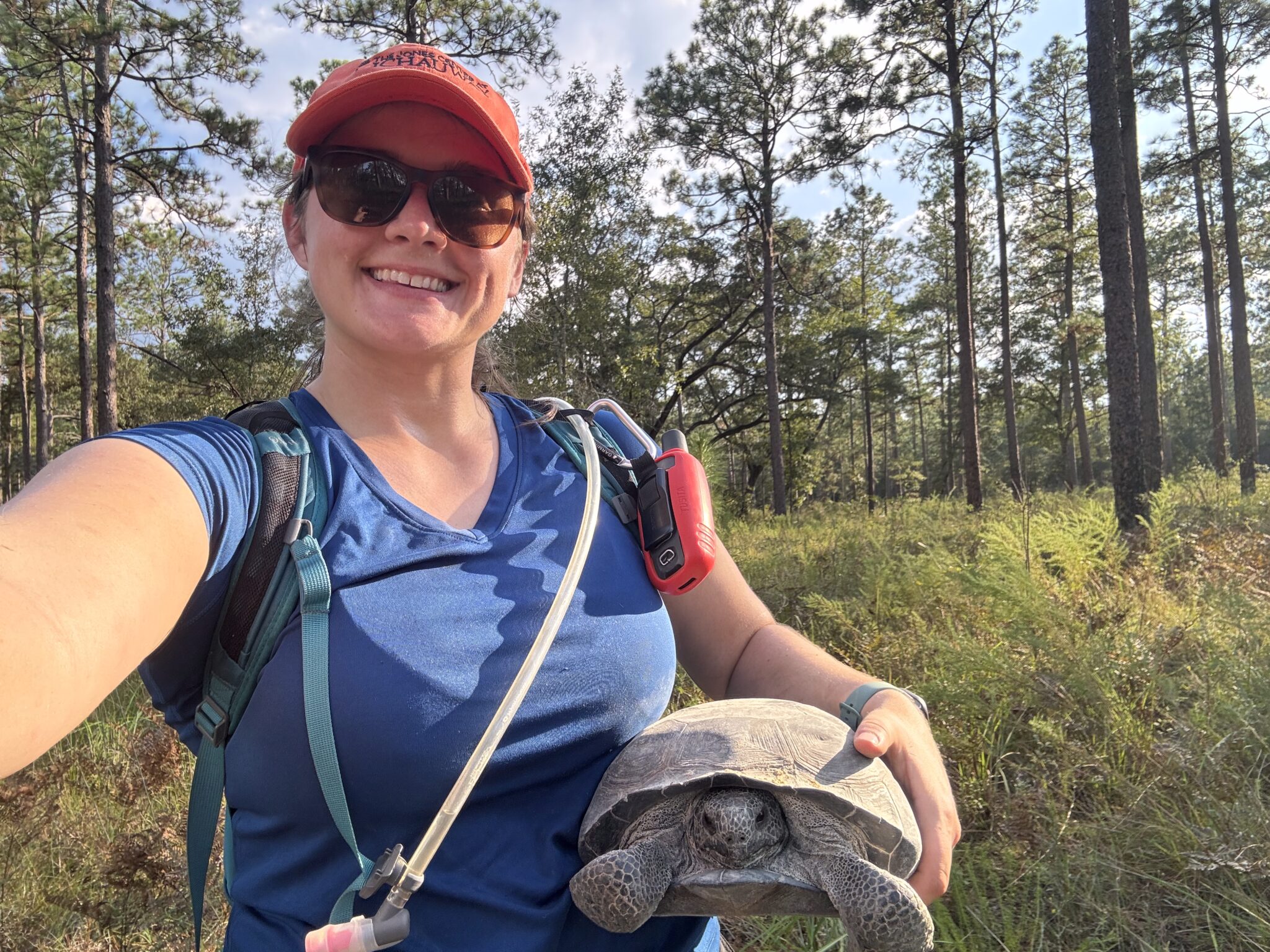
Sam Smith
PhD Student
My research interests largely revolve around spatial ecology, with an emphasis on animal movement. I am currently a PhD student at Clemson University where I am studying gopher tortoise movement and how movement changes following prescribed fire. Another component of my research is attempting to quantify how gopher tortoises promote functional connectivity for their commensal species through their burrows. Prior to starting my PhD, I worked as a biologist in south Florida where I worked on a variety of herp-centered projects. Before working in the Southeast, I completed my master’s in environmental biology at Suranaree University of Technology in Thailand, where I investigated the spatial ecology of Burmese pythons. My master’s research helped to shape my research interests and got me hooked on trying to understand where animals go and why. I look forward to contributing to what we know about gopher tortoise movement ecology and the ecosystem services they provide through the use of new technology and analyses
